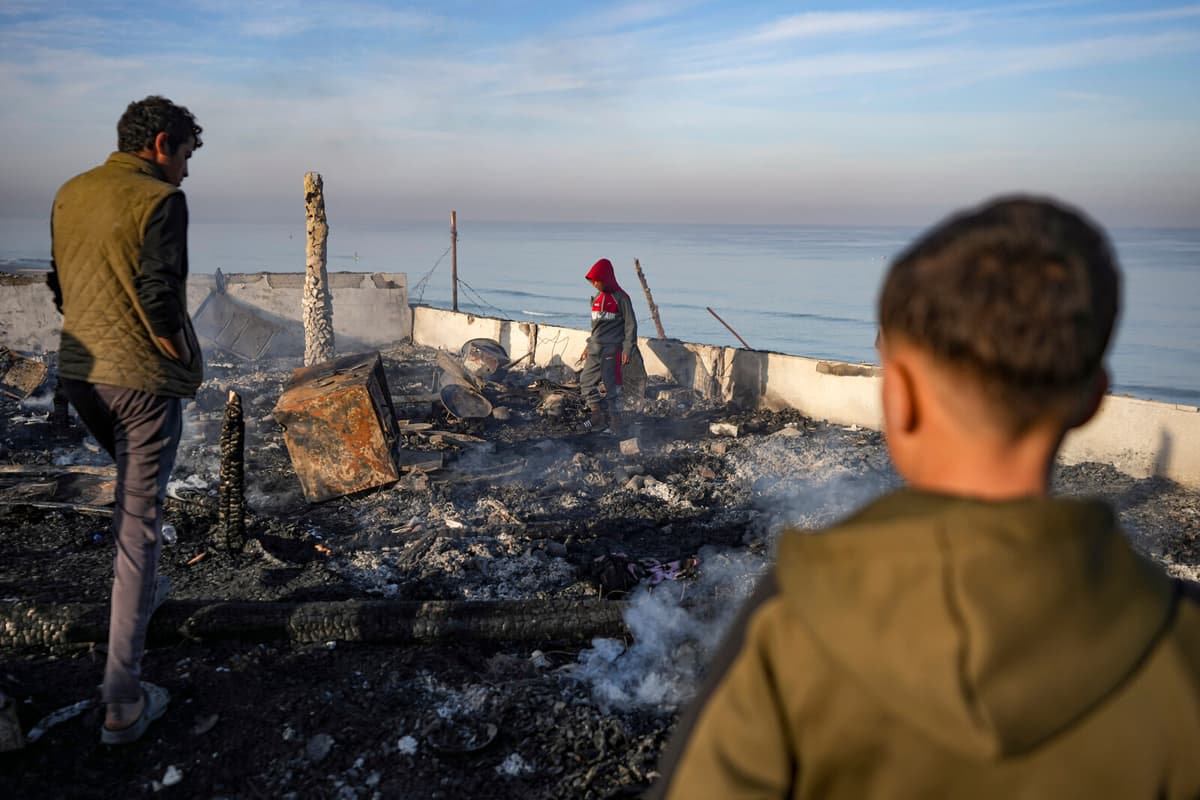Massa Zaqout is exactly as old as the war. The girl in pink pajamas was born on the same day as the terrorist-stamped Hamas launched an attack on Israel and the war became a fact.
Now she plays on the mat that covers the floor in the tent in Dayr al-Balah, unaware of her parents' constant search for food, medicine, and other necessities to give their daughter a decent life.
We are eagerly waiting for a ceasefire so we can live in safety and stability. And so that my daughter can have more opportunities, says mother Rola Saqer to AP.
Eleven-year-old Ibrahim al-Aker has been forced to flee seven times during the 15-month war, lost 70 relatives, and been severely shot. His hometown of Rafah lies uninhabitable, a ghost town of bombed gray concrete.
Misses School
As the long-drawn-out negotiations for a ceasefire are now reported to have reached a final stage, feelings are mixed.
I am optimistic and very happy. But I wish I could have returned to Rafah, to my life and my school, he says to The Guardian.
A ceasefire has been rumored to be near several times before. Muhammad al-Hallaq from Gaza City dares not believe that it will actually happen this time.
I am very worried that I will be disappointed again, like so many times before, says the 31-year-old.
Abdul Salama does not believe it at all.
It's just lies. Everything is lies. We've heard so many times before that the negotiations are moving forward, he says to CNN in Khan Yunis.
Then we hear that they have failed.
Used to Have Plans
Another Khan Yunis resident, Abu Samir, throws out his arms over the remains of bombed-out buildings. Bent reinforcement rods stick out among the rubble and concrete blocks.
If a ceasefire takes place and the residents of this area return – where will they go? Is this even a suitable place for human life?
Muad Zakariy al-Kahlout used to have plenty of plans for life after the war. They have disappeared over time. Regardless of when a ceasefire occurs, it will be too late.
I don't know what the day after the war will look like, he says to NBC News in Nuseirat and continues:
We have lost too many.
More than 46,700 people have been killed in the Gaza Strip since the start of the war on October 7, 2023, according to the Hamas-controlled health department. At least 110,000 are reported to have been injured during the same period.
The authorities' figures do not distinguish between children, women, men, and Hamas fighters.
The number of dead in Gaza is a disputed issue. Israel has consistently questioned the health authority's figures, while, among others, the UN has considered them more reliable.
A study published in the British medical journal The Lancet last week claims that significantly more than reported may have been killed in the war. A reasonable assumption, according to the researchers, is that over 64,000 may have died just during the war's first nine months.
59 percent of the dead are, according to the study, women, children, and the elderly.






